Faculty members and students from The University of Alabama recently attended the 13th Biennial Freshwater Mollusk Conservation Society Symposium in Portland, Oregon. The conference was held April 10-14.
Matt Lodato, a Ph.D. candidate in UA’s Department of Biological Sciences, won the award for Best Student Platform Presentation.
The Freshwater Mollusk Conservation Society is dedicated to the advocacy and conservation of North America’s most imperiled animals. The FMCS holds its conference every other year and offers researchers the opportunity to network and discuss new findings about the animals. However, this marks the first year it has been held in person since 2019.
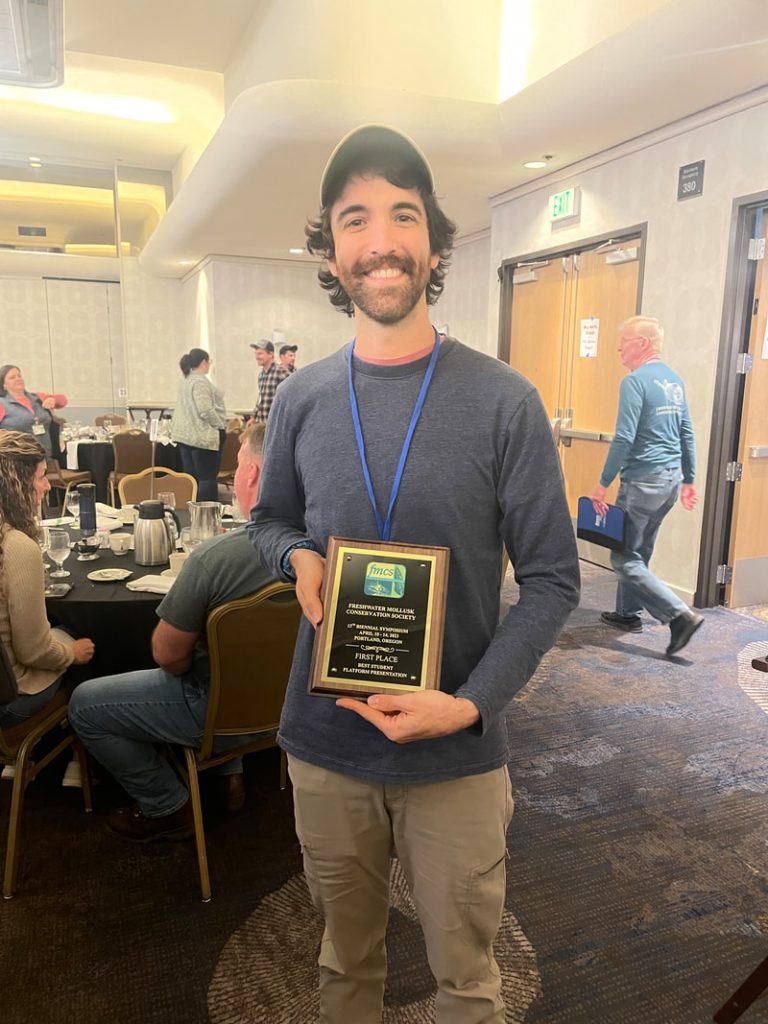
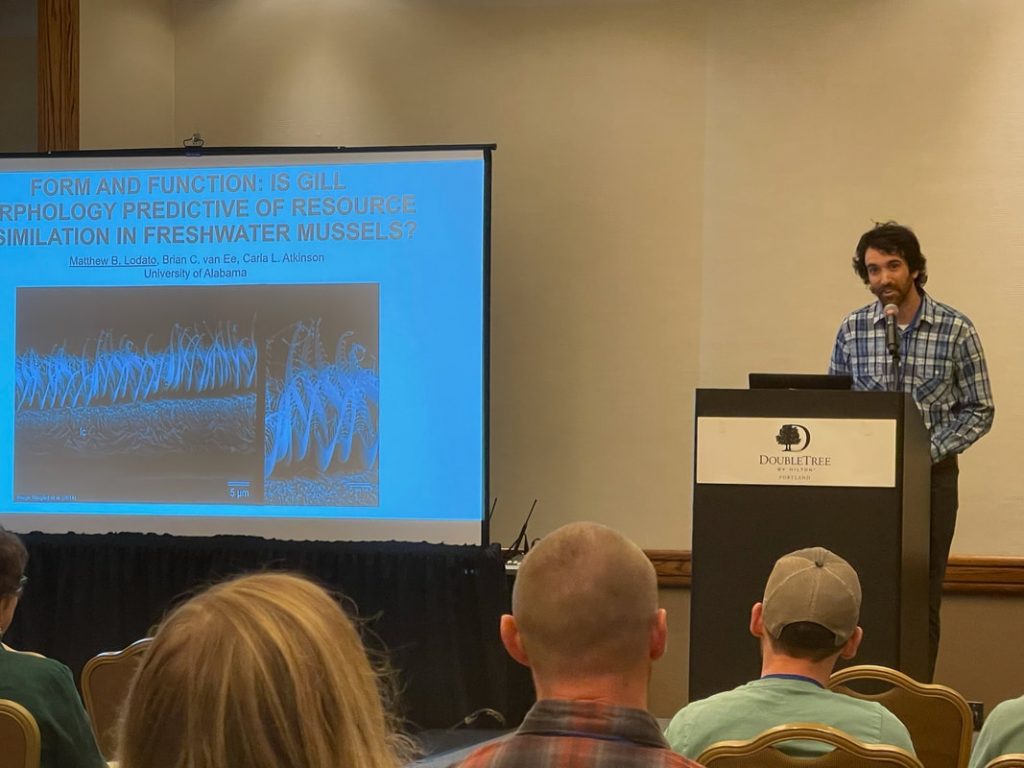
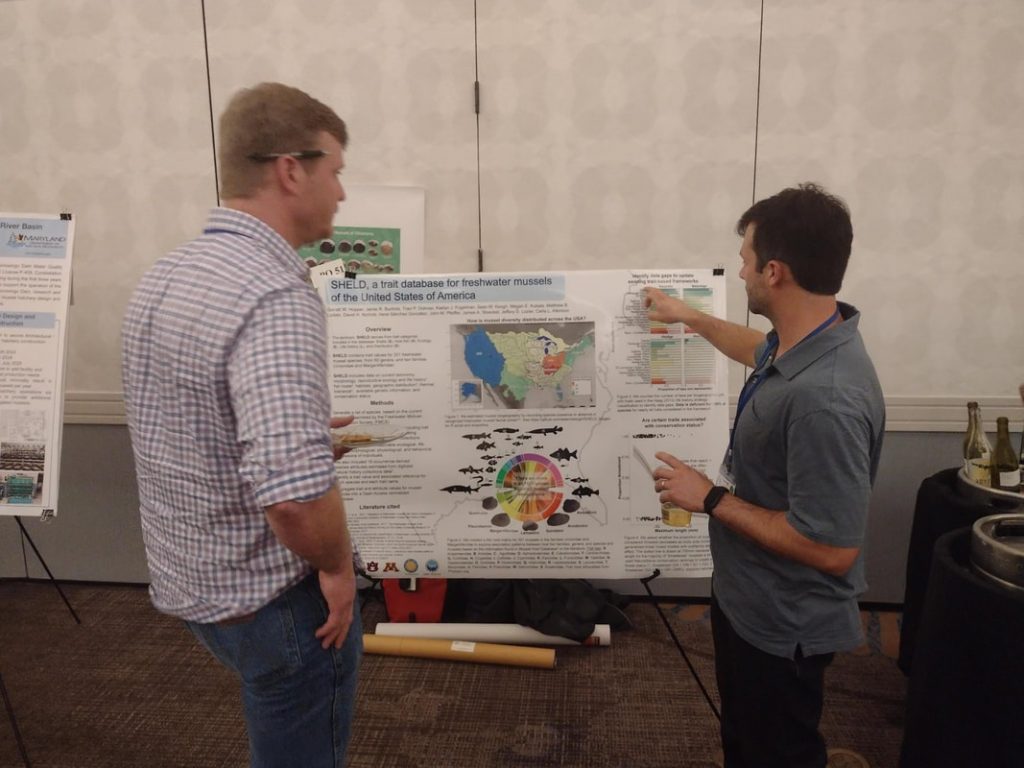
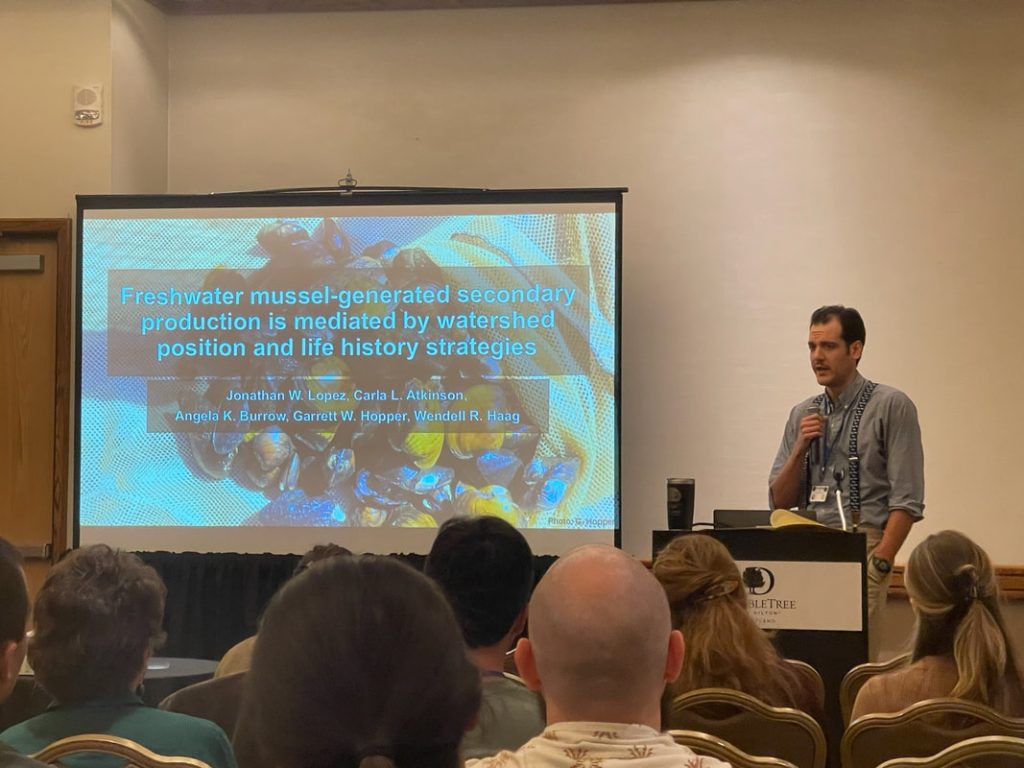
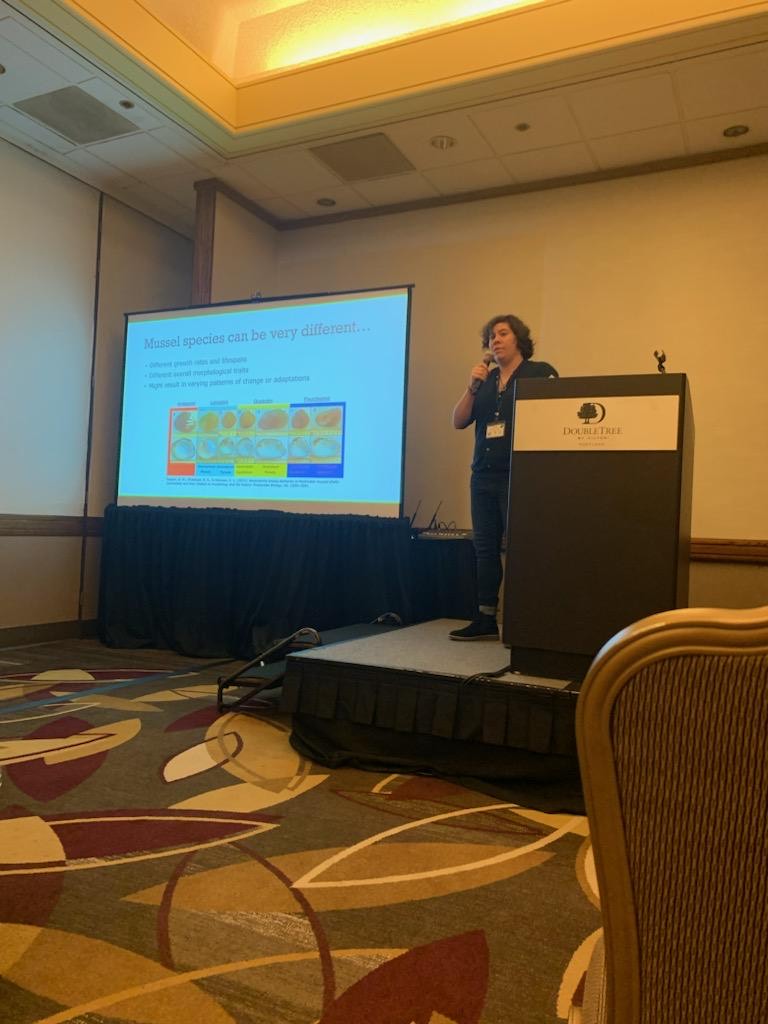
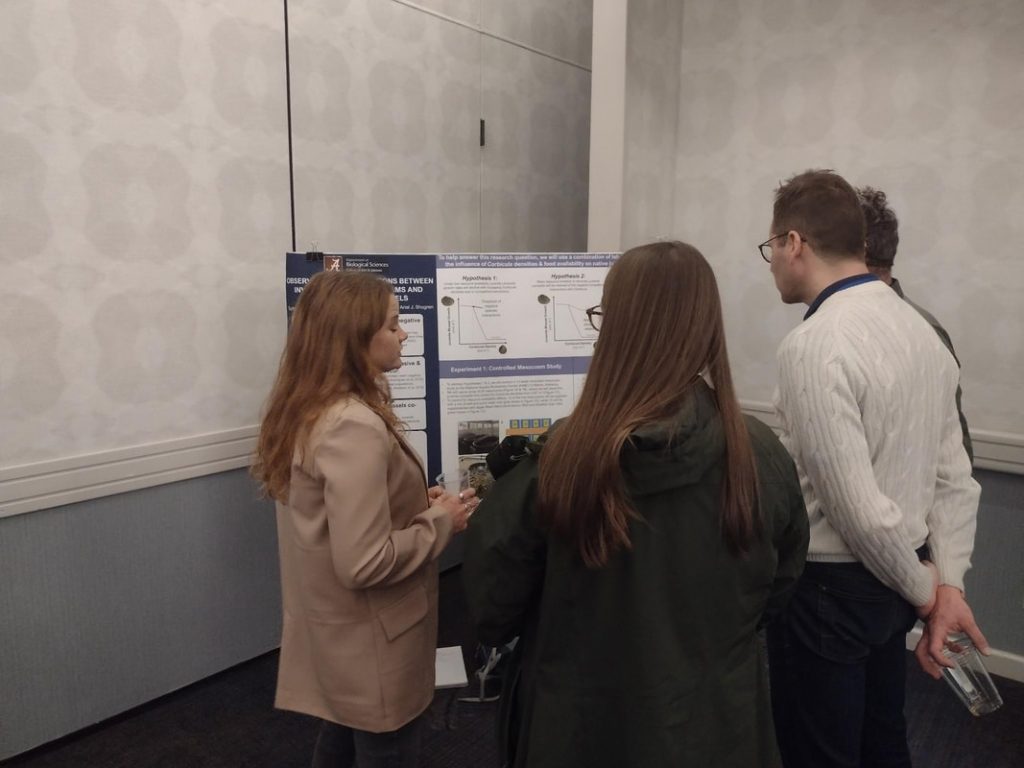
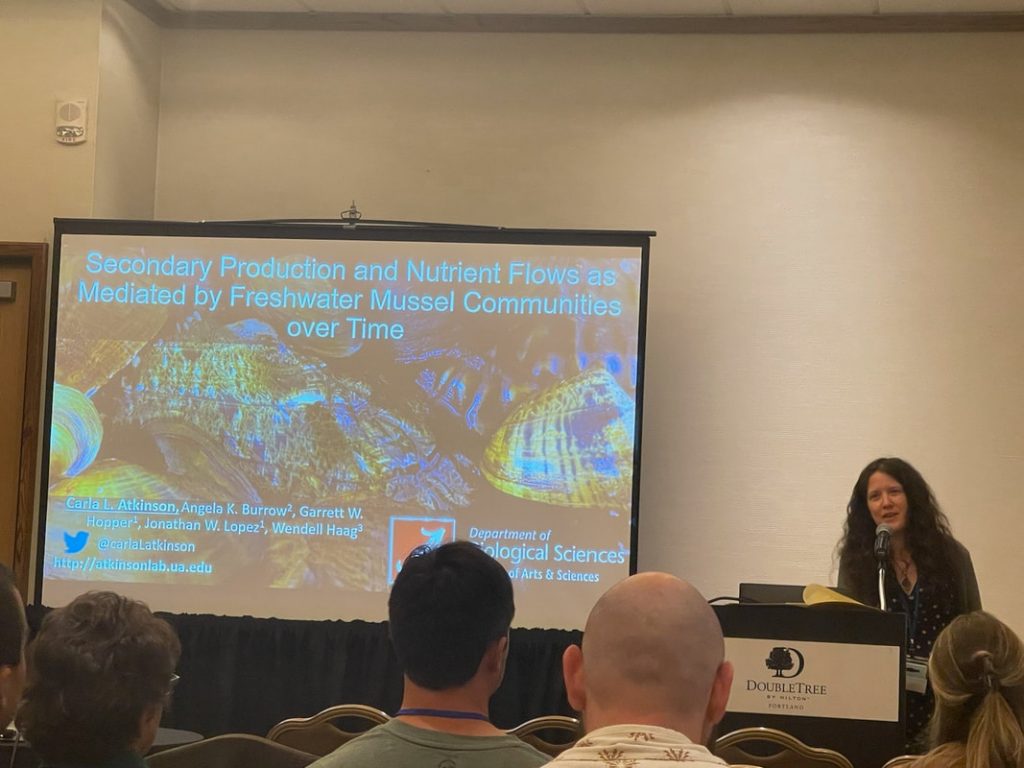
“It was great seeing many of my U.S. colleagues, as well as interacting with several scientists working in Europe and seeing the methods they are employing,” said Dr. Carla Atkinson, associate professor of biological sciences. “The members of the society are very friendly and provide a welcoming atmosphere.”
Joining Atkinson in presenting at the conference were lab members Dr. Garrett Hopper, Dr. Jonathan Lopez, Irene Sánchez González, Taylor Kelley and Lodato. Jamie Bucholz from Dr. Jeff Lozier’s lab also presented.
Lodato won his award for his presentation on freshwater mussel gill morphology and how it relates to the variety of food items that they assimilate.
“It felt really nice to win that award, and I was definitely surprised and honored,” he said.
Lodato’s research primarily centers around how freshwater mussel communities influence river environments. Specifically, how they influence the flux, transformation and cycling of elements.
“The journey to where I am now is iterative, but I always thought it was pretty cool that life is composed of the same building blocks, or elements, but in varying proportions,” he said.
Lodato is currently working on his Ph.D. in biology at UA. After he graduates, he plans to pursue a postdoctoral research position and eventually a tenure tack professorship to further investigate the feeding ecology and biogeochemical influence of freshwater mussel communities. He holds a B.S. in marine biology and M.S. in environmental biology with an emphasis in microbial ecology, both from the University of Southern Mississippi.
